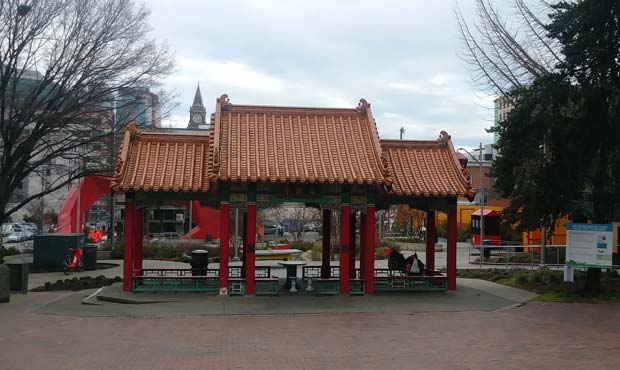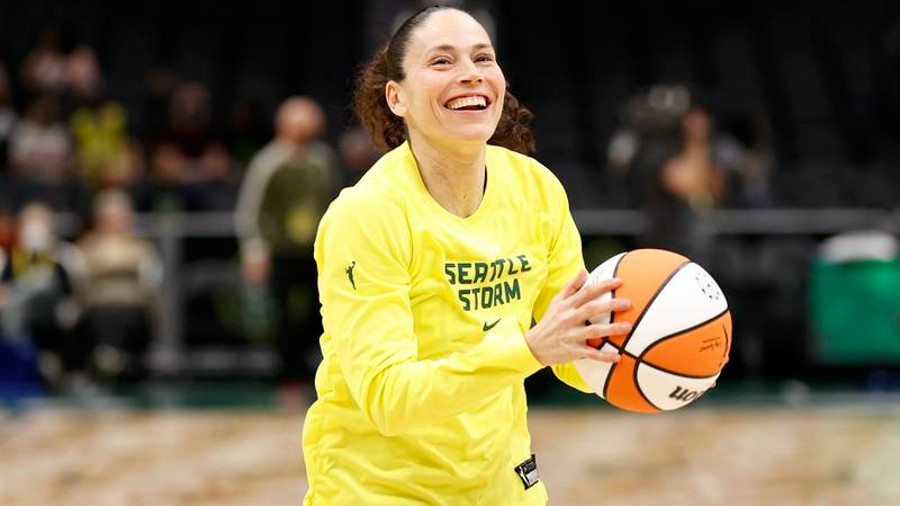Chinatown, International District restaurants feel the pinch of coronavirus
Mar 11, 2020, 3:44 PM
Small businesses all over Seattle are feeling the pain of the coronavirus outbreak. But perhaps nowhere has been hit as hard as restaurants in Seattle’s Chinatown and International District.
As the number of coronavirus cases in the region have continued to rise over the past ten days, the fear has kept the evening crowd indoors and the lunch crowd working from home.
However, weeks before coronavirus was identified in Seattle, the Chinese restaurants on Jackson and King Streets noticed a significant drop in sales. Business owners believe apprehension over the virus’ origin in Wuhan, China, could be the culprit.
Laura Clise owns Intentionalist, a startup dedicated to supporting small businesses and encouraging people to shop at local, mom-and-pop stores.
Gov. Inslee announces ban on large groups in trio of counties
“The impact in Seattle’s Chinatown/International District has been a little more acute than other neighborhoods,” Clise said. “It’s been a little bit disappointing that apparently there is some inability to distinguish between China and Chinese food.”
This has happened in Chinatown neighborhoods throughout the country, she noted.
“Business has been way down, foot traffic has been way down, and as a result, business owners are having to make really difficult decisions,” Clise said.
Business owner Harry Chan’s grandfather started Tai Tung, Seattle’s oldest Chinese restaurant, in 1935. It’s a five-generation restaurant; now his children and grandchildren work there.
But with news of coronavirus in Wuhan, business began dropping in January. Overall, sales are down about 20 percent.
“Since the beginning of the virus, a lot of people are kind of scared to come to Chinatown because the virus is from China,” Chan said.
Some of the eateries in Chinatown and the International District have made the decision to close five days a week, and just open on weekends.
That’s something Amy Eng, owner of Dim Sum King, is considering. She has already had to cut staff hours, and she worries about the impact on her employees if she begins closing on certain days.
“If we close, they don’t have the money to pay the rent, they don’t have the money to pay [for their] cars,” Eng said.
She said the city council has given Chinatown no support.
Eng has owned Dim Sum King for 11 years. When the virus first started in China, business dropped by 50 percent — now, with the virus spreading in the Seattle area, it’s down to a 70 percent drop.
“Our business is so slow — every day is slow,” she said.
With people afraid to go out, takeout orders have become important for both restaurants. Tai Tung also uses a delivery service.
Intentionalist pointed out, however, that if you can make it down to the eatery, it is much better for a small business to do takeout, as food delivery apps often cost restaurants much of the profit of a sale.
The community coming together for Chinatown
In the tough times, there are bright spots.
“What we’ve started to see, as word has gotten out, are people online and otherwise rallying to share their favorite places, their favorite dishes, their favorite memories, and encouraging one another to show up and ensure that these businesses are able to survive,” Clise said.
Intentionalist is creating pages on its website full of ideas to help support local small businesses. For example, #LunchLikeItMatters this Friday is an effort to get people to have lunch at House of Hong.
The Chinatown/International District Business Improvement Area has also been sharing the history and culture of the neighborhood with consumers.
Clise understands why people are afraid to go out, but she encourages them to balance the risks and remember the community businesses that are hurt by panic.
“Folks are paying attention and want to be sensitive when it comes to the health and well-being of themselves and their families, and I think that that’s understandable,” she said. “I think at the same time, it’s important to balance that with making not only decisions that are prudent for ourselves and our families’ health, but also the health of our community.”
Chan is thankful to have a faithful customer base that comes out to support him.
“We have a lot of loyal customers since we’ve been here 85 years,” he said. “And a lot of them see, ‘Wow, Tai Tung is hurting — we’ll come down to support them.'”



















